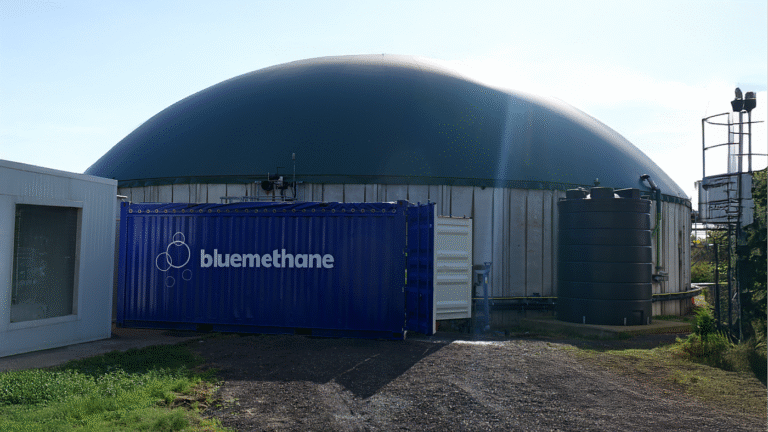[Disclosure: AgFunderNews’ parent company AgFunder is an investor in Eion.]
Eion—a startup with a patented approach to measuring CO2 removed through enhanced rock weathering (ERW) on farmland—has struck a $33 million carbon removal offtake deal with Frontier, a $1 billion+ advance market commitment to purchase permanent carbon removal by 2030 established by McKinsey, Alphabet, Meta, Shopify, and Stripe.
Under the offtake deal, its largest to-date, Eion will remove 78,707 tons of CO2 between 2027-2030 by applying olivine—a mineral it has optimized to weather quickly—on farmland across the Midwest and South.
To support deployment at scale, Eion has partnered with ag co-op Growmark, which has a farmer network reaching nearly 400,000 customers, said Eion CEO Anastasia Pavlovic.
“Frontier’s offtake provides an opportunity to meaningfully scale enhanced rock weathering in the US. Via our partnership with Growmark, we’re excited to deliver tangible value to the farmers who are critical to achieving significant carbon removal while maintaining operational excellence on the farm.”
Soil fingerprinting
Rather than applying ag lime (pulverized limestone or calcium carbonate) to farmland to reduce soil acidity, Berkeley-based Eion supplies farmers with a 1:1 replacement: crushed olivine, a mineral mined in Norway by its partner and investor Sibelco.
Rain and soil acidity dissolve the olivine, which increases soil pH, improves soil health, and absorbs CO2 from the atmosphere. Ultimately, it ends up in rivers and makes its way to the ocean, permanently sequestering carbon. Application levels will vary but are typically around one ton per acre.
Founded by Dr. Elliot Chang and Adam Wolf in 2020, Eion calculates the carbon dioxide removed from the atmosphere through its mineral weathering process by measuring trace elements in the soil (‘soil fingerprinting’) such as magnesium, chromium, and nickel.
Eion takes soil samples before the olivine is applied and monitors changes in the soil over time to quantify weathering and the CO2 removed in the process. Typically, 40-70% of the mineral dissolves six to nine months after application, going down to zero after one to four years, when it can be reapplied.
Eion generates revenue by selling carbon credits to companies looking to offset their emissions, with prices generally in the $300-$400 [per ton CO2 removed] range, although for the Frontier deal the dollar amount is just under $420/ton.
Enhanced rock weathering: Permanence and scalability potential
While Eion’s business model relies on selling carbon credits, some of which have been deemed ‘worthless,’ the devil is in the detail, Pavlovic told us.
“What people like about enhanced rock weathering is that the permanence and scalability potential is very high but project ramp-up complexity is low, meaning that a large amount of carbon removal can happen even in the next few years, as opposed to credits from direct air capture of carbon, which will take some years to ramp up given facility construction and production ramp-up time.
“I’ll also point out that we don’t view other pathways as competitors. While they also remove carbon dioxide permanently, all of these pathways will be needed to meet our climate goals as a planet.”
While the temptation for corporations buying credits on the voluntary carbon market might be to pick the cheapest option, they are now facing far more scrutiny, which is prompting interest in credits from firms such as Eion that can provide far more robust documentation to support its ISO-compliant methodology, claimed Pavlovic.
Down the road, Eion is also looking at generating revenue from licensing its patented measurement technology to other players in the enhanced rock weathering space, said Pavlovic: “We are still evaluating that as a slightly different take on our existing go to market.”
The post Enhanced rock weathering startup Eion secures $33m carbon removal offtake deal with Frontier appeared first on AgFunderNews.


